
The Timeless Charm of Old Tbilisi
Old Tbilisi, the heart of Georgia's capital city, is a captivating blend of history, culture, and modernity. This neighbourhood, with its narrow cobblestone streets and colourful wooden balconies, offers a glimpse into the city's rich past. Visitors can wander through the labyrinthine alleys, discovering ancient churches, historic homes, and hidden courtyards. The sulphur baths, a hallmark of Old Tbilisi, provide a unique opportunity to relax and rejuvenate in a setting that has welcomed travellers for centuries. The neighbourhood is also a hub for Georgian cuisine, with numerous restaurants and cafes offering traditional dishes like khachapuri and khinkali. The vibrant Shardeni Street and its surroundings are perfect for an evening stroll, where you can enjoy live music, art galleries, and boutique shops. Old Tbilisi's architecture is a testament to its diverse influences, with Persian, Russian, and European styles blending seamlessly. For those interested in history, the Narikala Fortress and the Metekhi Church offer stunning views of the city and insights into its storied past. The neighbourhood is also home to the Tbilisi History Museum, where you can learn more about the city's evolution. Whether you're sipping wine at a local bar or exploring the scenic Rike Park, Old Tbilisi promises an unforgettable experience.
Local tips in Old Tbilisi
- Wear comfortable shoes for walking on cobblestone streets.
- Visit the sulphur baths early in the morning to avoid crowds.
- Try local Georgian wines at one of the many wine bars.
- Take a cable car ride to Narikala Fortress for panoramic city views.
- Keep some cash handy as not all places accept credit cards.
The Timeless Charm of Old Tbilisi
Old Tbilisi, the heart of Georgia's capital city, is a captivating blend of history, culture, and modernity. This neighbourhood, with its narrow cobblestone streets and colourful wooden balconies, offers a glimpse into the city's rich past. Visitors can wander through the labyrinthine alleys, discovering ancient churches, historic homes, and hidden courtyards. The sulphur baths, a hallmark of Old Tbilisi, provide a unique opportunity to relax and rejuvenate in a setting that has welcomed travellers for centuries. The neighbourhood is also a hub for Georgian cuisine, with numerous restaurants and cafes offering traditional dishes like khachapuri and khinkali. The vibrant Shardeni Street and its surroundings are perfect for an evening stroll, where you can enjoy live music, art galleries, and boutique shops. Old Tbilisi's architecture is a testament to its diverse influences, with Persian, Russian, and European styles blending seamlessly. For those interested in history, the Narikala Fortress and the Metekhi Church offer stunning views of the city and insights into its storied past. The neighbourhood is also home to the Tbilisi History Museum, where you can learn more about the city's evolution. Whether you're sipping wine at a local bar or exploring the scenic Rike Park, Old Tbilisi promises an unforgettable experience.
Iconic landmarks you can’t miss
Bridge of Peace
Discover the stunning Bridge of Peace in Tbilisi, a symbol of modern architecture and connection to the city's rich history, perfect for memorable walks and breathtaking views.
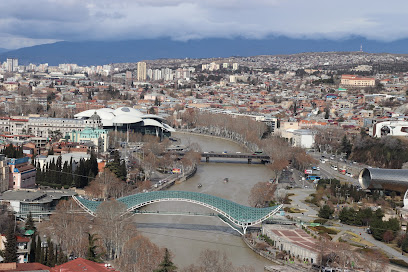
Monument of St. George
Explore Tbilisi's Monument of St. George, a stunning sculpture symbolizing Georgia's resilience, rich heritage, and cultural pride in Freedom Square.
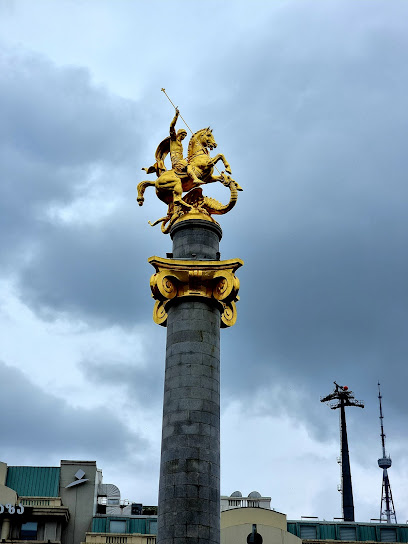
The Clock Tower
Discover the magic of Tbilisi's Clock Tower, where art meets time in a delightful display of culture and history.
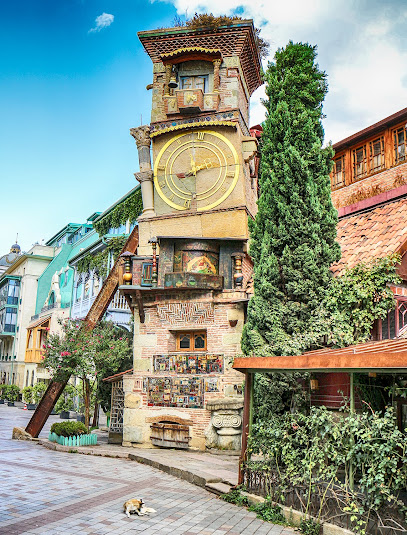
Tbilisi Old Town Wall Ruins
Discover Tbilisi Old Town Wall Ruins, a historical landmark that showcases the rich heritage and breathtaking views of Georgia's captivating capital.
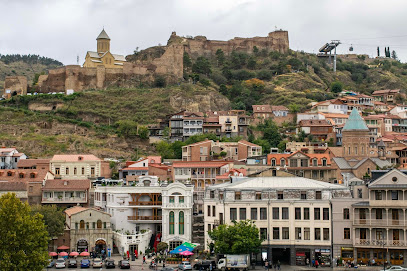
Native Language Monument
Discover the Native Language Monument in Tbilisi, a stunning tribute to Georgian culture and linguistic heritage, set in a tranquil park atmosphere.
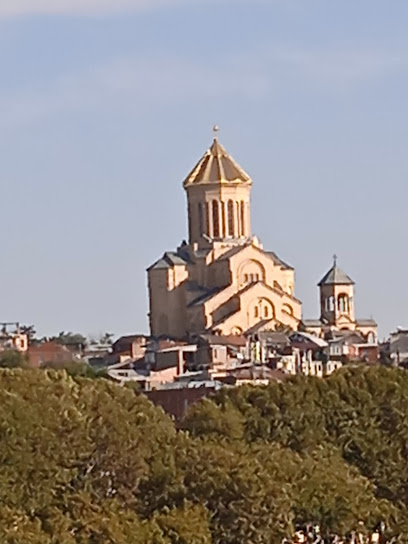
Baratashvili Bridge Bronze Statues
Explore the stunning Baratashvili Bridge Bronze Statues in Tbilisi, where art meets history in a picturesque riverside setting.
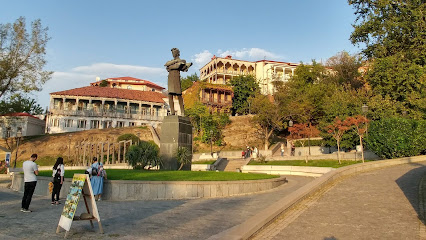
Symbolic monument of Tbilisi-city თბილის-ქალაქის სიმბოლური ძეგლი
Explore Tbilisi's symbolic monument, a stunning architectural blend of tradition and modernity, reflecting Georgia's rich cultural heritage.
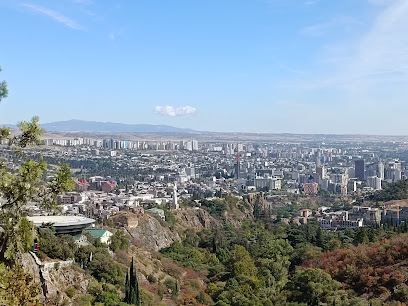
Old Town wall ruins
Explore the Old Town Wall Ruins in Tbilisi, where history meets breathtaking views in Georgia's vibrant capital city.
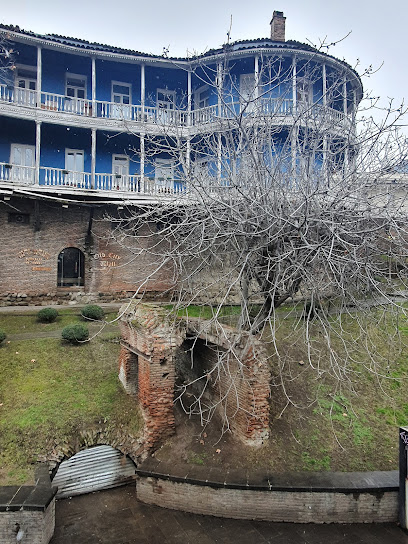
Memorial of outstanding artists
Discover the Memorial of Outstanding Artists in Tbilisi, a serene tribute to creativity and cultural heritage that enriches your travel experience.
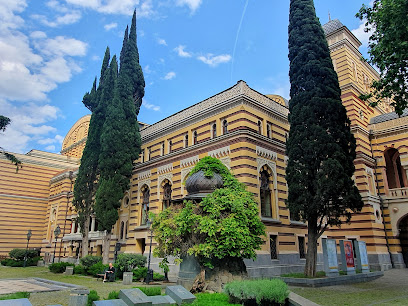
Tbilisi Georgia
Discover the charm of Tbilisi, Georgia's capital, where rich history and modern allure create an unforgettable travel experience.
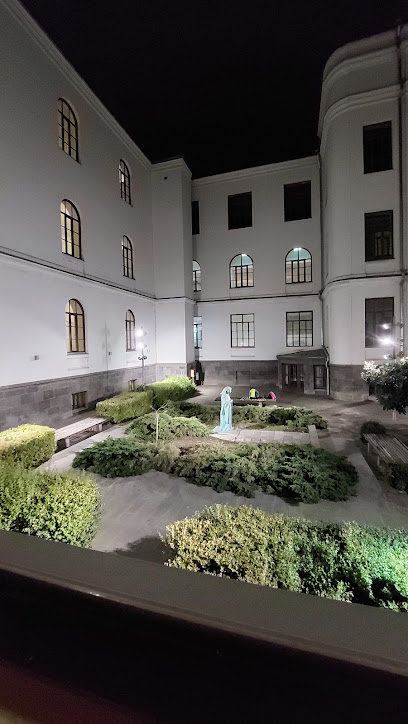
Unmissable attractions to see
მთაწმინდის პარკი -Mtatsminda Park
Experience Tbilisi from above at Mtatsminda Park: Rides, views, and fun for all ages on the city's highest point.
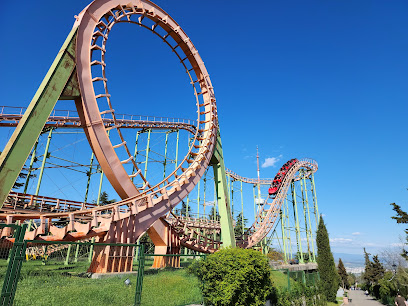
Bridge of Peace
A stunning pedestrian bridge in Tbilisi, Georgia, connecting the old city to the new with modern design and captivating LED light displays.
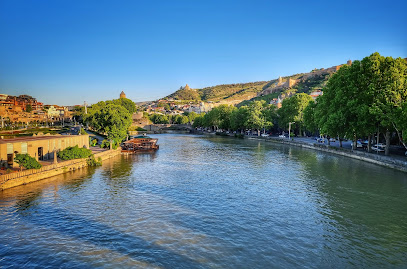
Rike Park
Discover Tbilisi's modern heart: Rike Park offers stunning views, art, and a relaxing escape by the Mtkvari River.
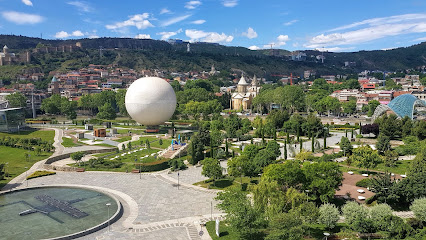
Liberty square
Discover Tbilisi's Liberty Square - a vibrant cultural hub showcasing history, architecture, and the lively spirit of Georgia's capital.
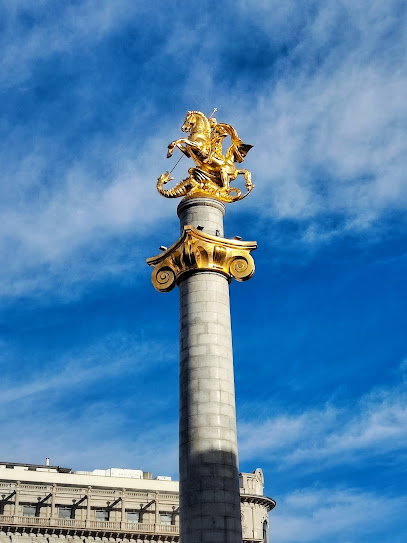
Holy Trinity Cathedral of Tbilisi
Tbilisi's iconic cathedral, a symbol of Georgia's spiritual revival, blending traditional architecture with breathtaking city views.
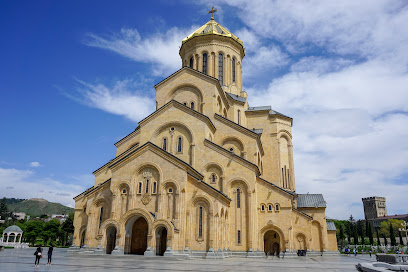
National Botanical Garden
Discover Tbilisi's National Botanical Garden: A historic green oasis with diverse flora, scenic waterfalls, and panoramic city views.
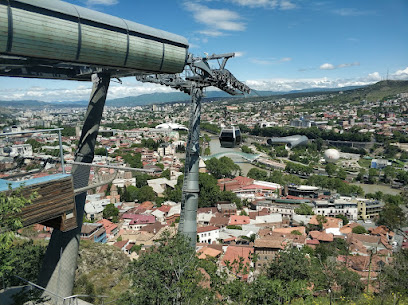
Georgian National Museum
Discover Georgia's rich history and culture at the Georgian National Museum, from ancient artifacts to Soviet-era relics.
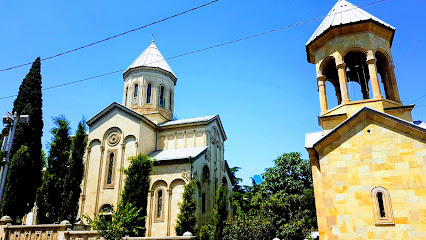
Mushthaid Garden
Discover Tbilisi's historic Mushthaid Garden: a green oasis with family attractions, a silk museum, and a charming children's railway.
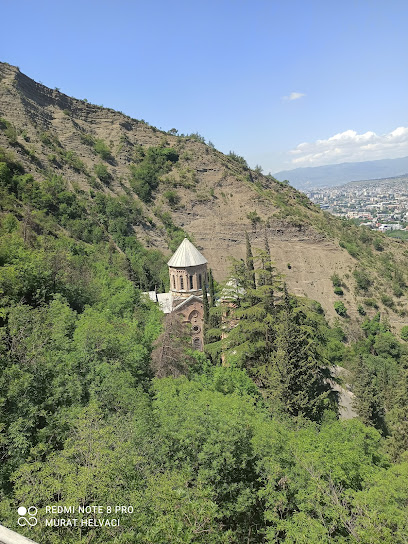
Mother of Georgia
An iconic symbol of Tbilisi, the Mother of Georgia statue represents the nation's hospitality and strength with panoramic city views.
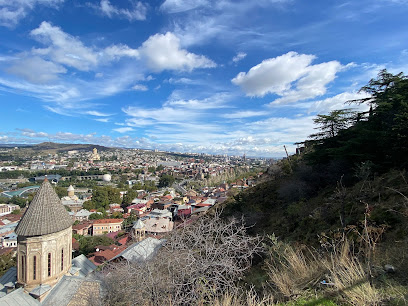
Tbilisi Old Town Wall Ruins
Explore Tbilisi's medieval past at the Old Town Wall Ruins, a historical landmark offering panoramic views and a glimpse into the city's resilient heritage.
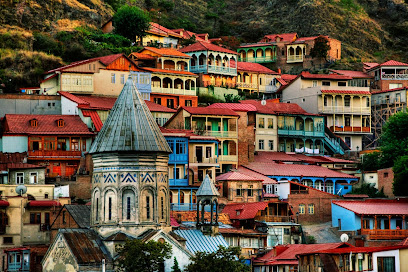
Essential places to dine
Shavi Lomi
Experience authentic Georgian cuisine at Shavi Lomi in Tbilisi - where every dish tells a story.
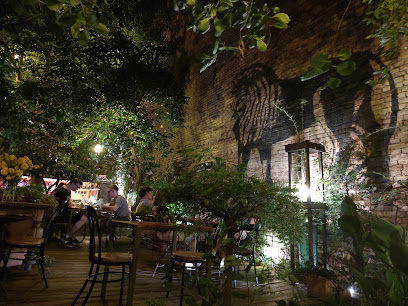
Restaurant Hide
Experience the essence of Georgian cuisine at Restaurant Hide, where exquisite flavors meet an inviting atmosphere in Tbilisi.
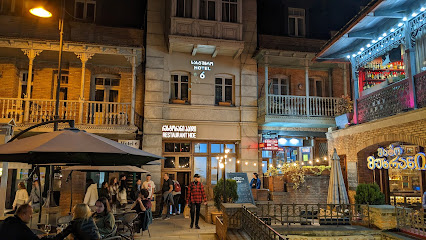
Sakhli # 11
Discover authentic Georgian cuisine at Sakhli #11 in Tbilisi - where tradition meets flavor in every dish.
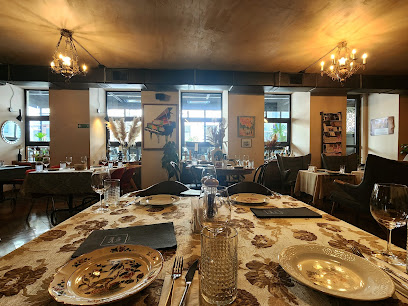
Old metekhi
Experience authentic Georgian cuisine with breathtaking views at Old Metekhi on Tbilisi's iconic Metekhi Rise.
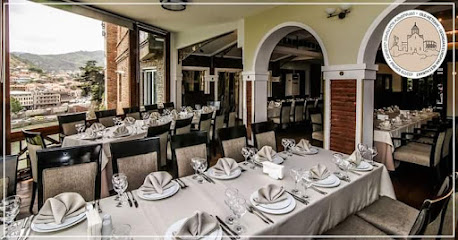
The Kitchen
Discover The Kitchen in Tbilisi – where traditional Georgian flavors meet contemporary culinary innovation for an unforgettable dining experience.
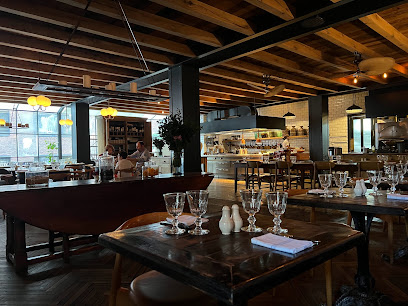
The King & The Bird
Discover the essence of Georgian cuisine at The King & The Bird in Tbilisi - where tradition meets innovation in every dish.
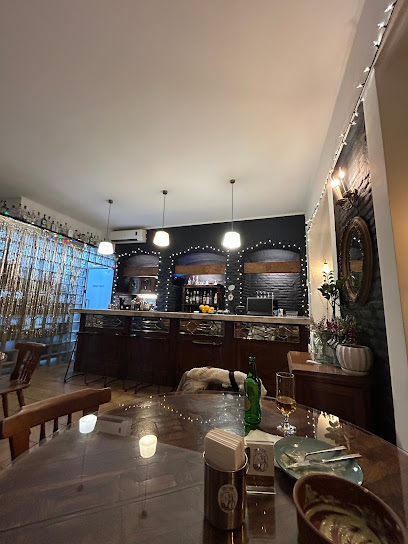
Brasserie Buvette
Discover culinary brilliance at Brasserie Buvette in Tbilisi – where European elegance meets Georgian warmth.
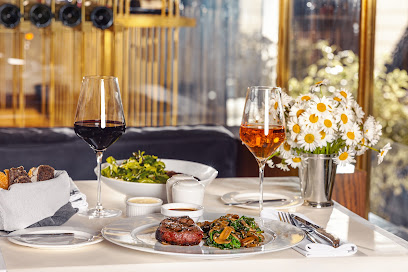
Dzveli Sakhli
Experience the rich flavors of traditional Georgian cuisine at Dzveli Sakhli in Tbilisi - a culinary gem offering authentic dishes and warm hospitality.
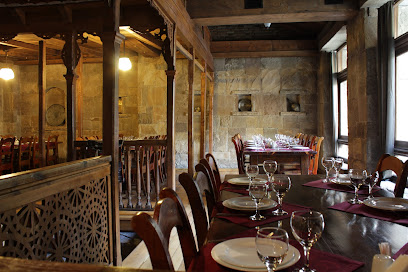
BalconY no7
Savor the essence of Georgia at BalconY no7 - where authentic flavors meet charming ambiance in Tbilisi.
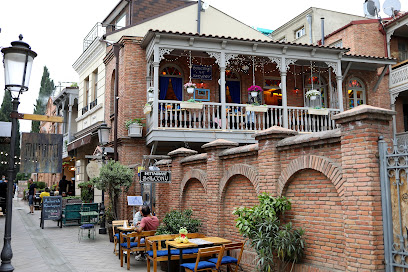
Old Town
Experience authentic Georgian cuisine at Old Town in Tbilisi—where tradition meets taste amidst stunning historic surroundings.
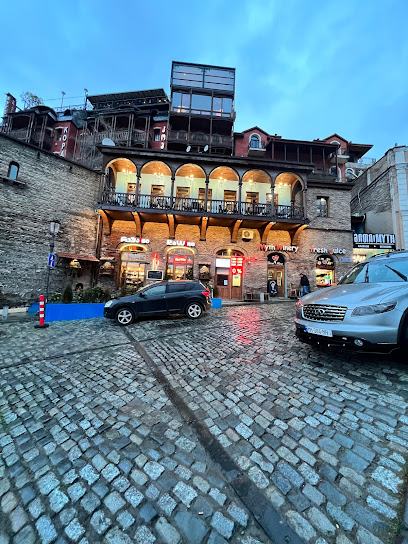
Markets, malls and hidden boutiques
Dezerter Vintage
Explore the eclectic world of vintage fashion at Dezerter Vintage in Tbilisi, where every piece tells a story and reflects a rich cultural heritage.
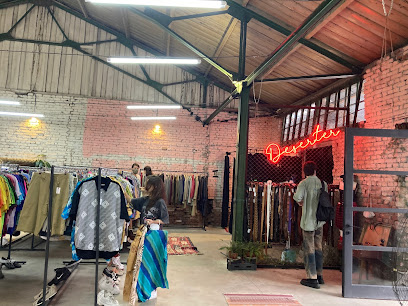
Vintylator Vintage Shop
Explore the enchanting Vintylator Vintage Shop in Tbilisi, where timeless fashion meets unique finds in a charming atmosphere.
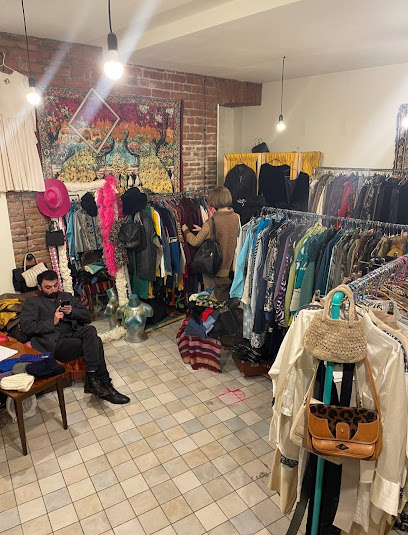
Babale
Discover the essence of Georgian culture at Babale, your go-to souvenir store in the heart of Old Tbilisi, filled with unique crafts and treasures.
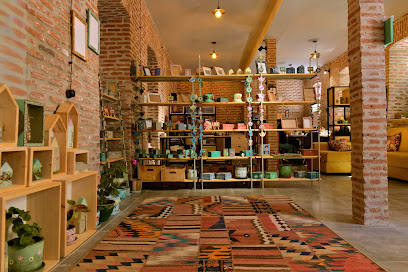
Vintylator Vintage shop
Explore Vintylator Vintage Shop in Tbilisi for unique vintage clothing and accessories, where every piece tells a story.
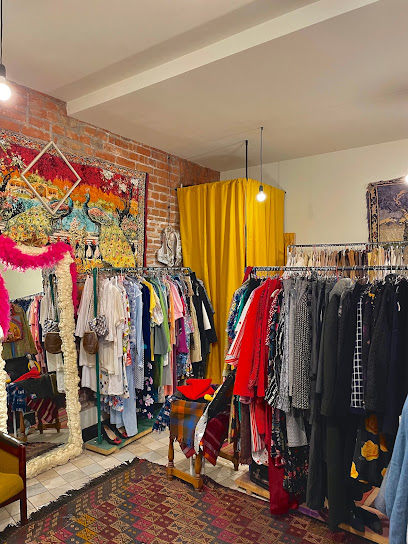
Antique Bazaar
Explore the Antique Bazaar in Old Tbilisi for unique treasures and a glimpse into Georgian history, all within a vibrant marketplace.
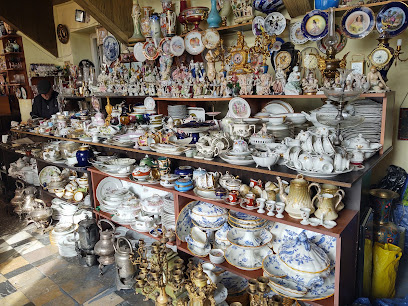
Underground Shop N23
Explore Underground Shop N23 in Tbilisi for unique Georgian crafts and souvenirs, showcasing local artisans and their exquisite creations.
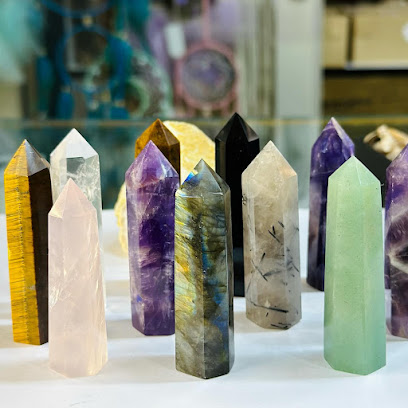
8-10 Shop
Explore the 8/10 Shop in Tbilisi for unique Georgian gifts, handcrafted items, and local delicacies, capturing the essence of Georgia's rich heritage.
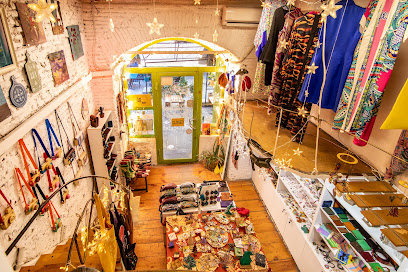
OleOp gallery and shop
Discover unique handcrafted gifts and contemporary art at OleOp Gallery and Shop in Old Tbilisi, a must-visit for art lovers and souvenir seekers.
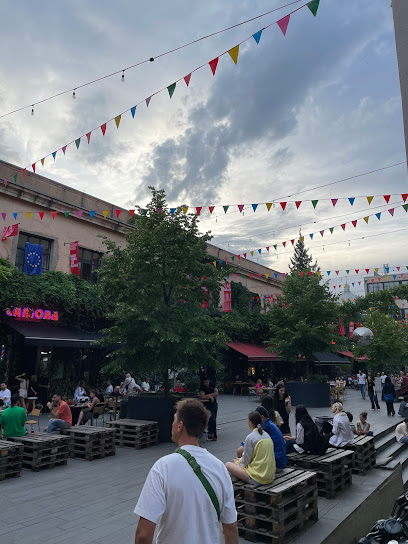
unique
Explore Tbilisi's Unique Souvenir Store for handcrafted treasures that embody Georgian culture and artistry, perfect for memorable gifts and keepsakes.
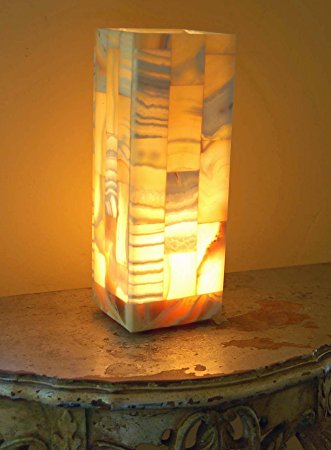
Naftalin Vintage Boutique
Explore the charm of vintage fashion at Naftalin Vintage Boutique in Tbilisi, where each piece tells a timeless story.
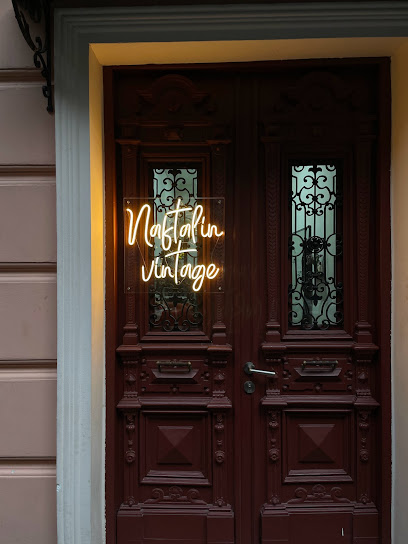
Avtandil
Discover unique vintage fashion treasures at Avtandil, a charming clothing store in the heart of Tbilisi's vibrant Dzveli district.
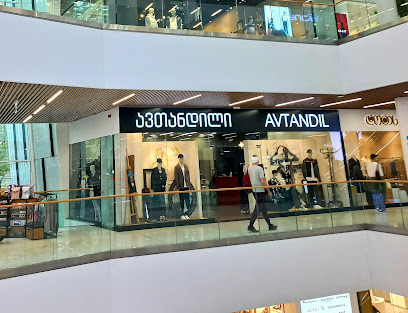
OldTbilisi Vintage
Explore OldTbilisi Vintage for unique antiques that reflect the rich heritage of Tbilisi, Georgia, and discover treasured pieces with stories to tell.

Essential bars & hidden hideouts
Warszawa
Discover the heart of Tbilisi's nightlife at Warszawa, a vibrant bar offering a perfect blend of local charm and lively social atmosphere.
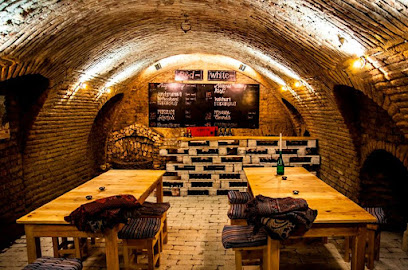
DADI wine bar and shop
Discover the essence of Georgian winemaking at DADI Wine Bar and Shop in Tbilisi, where every sip tells a story.
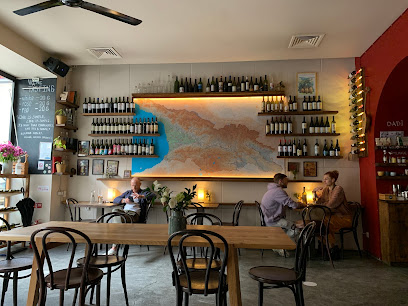
Sakhelosno BAR
Experience Tbilisi's vibrant nightlife at Sakhelosno BAR, where delicious drinks and unforgettable memories await near the Bridge of Peace.
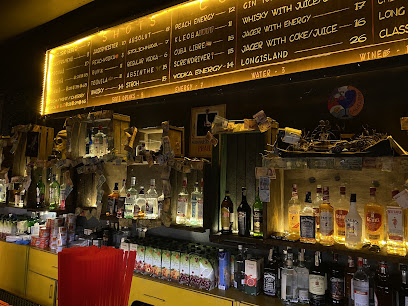
Canudos Ethnic Bar
Canudos Ethnic Bar combines cultural charm with a lively atmosphere in Tbilisi, perfect for enjoying drinks and local hospitality.
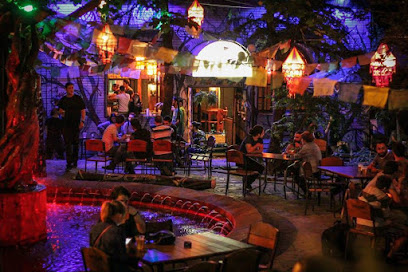
El Centro
Experience the vibrant nightlife at El Centro, Tbilisi's premier cocktail bar, where unique drinks and a stylish atmosphere await.
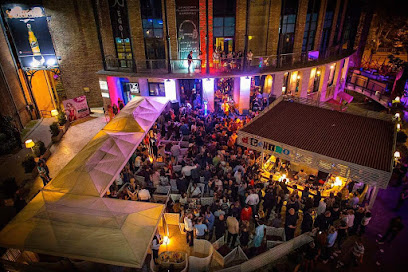
Wine Bar SANCHO Tasting & Shop
Discover the essence of Georgian wines at Wine Bar SANCHO, where tradition meets modernity in the heart of Tbilisi.
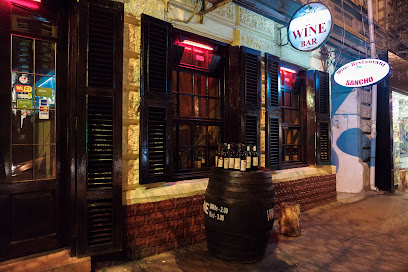
Old Generation
Discover Old Generation Bar in Tbilisi: A fusion of traditional Georgian hospitality and vibrant nightlife awaits you.
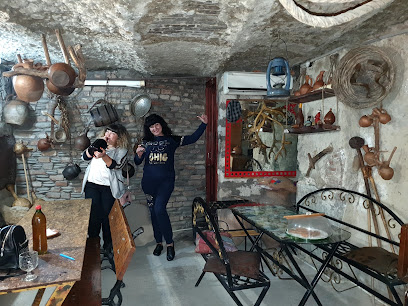
I love Joint | Bar
Discover I Love Joint in Tbilisi - a unique bar merging cannabis culture with exquisite wines in a vibrant, friendly atmosphere.
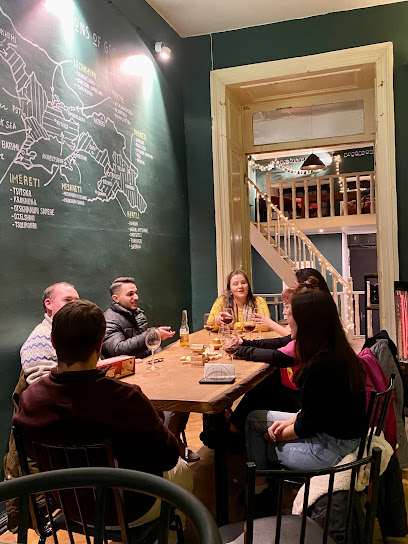
Raven's Bar Tbilisi / რეივენს ბარი თბილისი
Discover the vibrant atmosphere and exceptional cocktails at Raven's Bar Tbilisi, where mixology meets hospitality in the heart of Georgia.
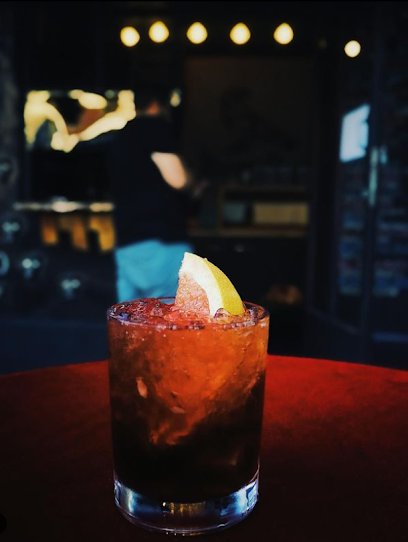
Anima Bar
Discover the vibrant nightlife and local flavors at Anima Bar in Dzveli Tbilisi, a perfect blend of tradition and modernity.
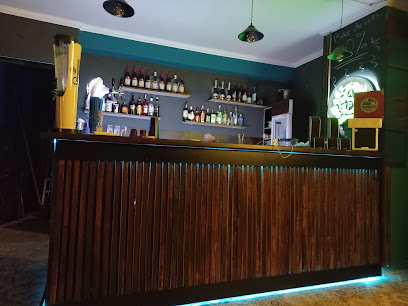
Local Phrases
-
- Helloგამარჯობა
[gamardjoba] - Goodbyeნახვამდი
[nakhvamdi] - Yesდიახ
[diakh] - Noარა
[ara] - Please/You're welcomeგთხოვთ
[gtkhovt] - Thank youმადლობა
[madloba] - Excuse me/Sorryშემშლელი ვარ
[shemshleli var] - How are you?როგორ ხარ?
[rogor khar?] - Fine. And you?კარგად. შენ?
[kargad. shen?] - Do you speak English?იცი ინგლისური?
[itsi inglisuri?] - I don't understandარ გასჭირდეს
[ar gaschirdes]
- Helloგამარჯობა
-
- I'd like to see the menu, pleaseგთხოვთ, მენიუს ნახოთ
[gtkhovt, menuis nakhot] - I don't eat meatმე ხორი არ ვჭამ
[me khori ar vcham] - Cheers!გასიმრულე
[gasimrule] - I would like to pay, pleaseგთხოვთ, გადაიხდოთ
[gtkhovt, gadaikdot]
- I'd like to see the menu, pleaseგთხოვთ, მენიუს ნახოთ
-
- Help!დაახლოე
[daakhloe] - Go away!წვერი გელი
[tsveri geli] - Call the Police!შემოიძიარეთ პოლიცია!
[shemoiziaret politsia!] - Call a doctor!შემოიძიარეთ ექიმი!
[shemoiziaret ekimi!] - I'm lostვაკაცდები
[vakatsdebi] - I'm illვარ ავირია
[var aviria]
- Help!დაახლოე
-
- I'd like to buy...მე მიყიდვა მინიჭებს
[me miqidva minich'eb] - I'm just lookingმე მხედავ
[me mkhedav] - How much is it?რამდენი ღირს?
[ramdeni ghirs?] - That's too expensiveეს ძალიან ზღვისავსაა
[es dzalian zghvisavsa] - Can you lower the price?შეიძლება თანხის შემოწმება?
[sheidzleba tank'is shemotsmeba?]
- I'd like to buy...მე მიყიდვა მინიჭებს
-
- What time is it?რა დროა?
[ra droa?] - It's one o'clockერთი არის
[erti aris] - Half past (10)ათის ნახევარი
[at'is nakhevari] - Morningდილა
[dila] - Afternoonსაღამო
[saghamo] - Eveningსაღამო
[mshvenieri] - Yesterdayგუშინ
[gushin] - Todayდღეს
[dges] - Tomorrowხვალ
[khval] - 1ერთი
[erti] - 2ორი
[ori] - 3სამი
[sami] - 4ოთხი
[otkhi] - 5ხუთი
[khuti] - 6ექვსი
[ekvsi] - 7შვიდი
[shvidi] - 8რვა
[rva] - 9ცხრა
[tskhra] - 10ათი
[ati]
- What time is it?რა დროა?
-
- Where's a/the...?სადაა ...?
[sad'aa ...?] - What's the address?რა მისამართია?
[ra mismartia?] - Can you show me (on the map)?შეიძლება მაჩვენოთ (რუკაზე)?
[sheidzleba machvenot (ruk'aze)?] - When's the next (bus)?როდისაა შემდეგი (ავტობუსი)?
[rodissaa shemdegi (avtobusi)?] - A ticket (to ....)ბილეთი (მიმდინარე ...)?
[bileti (mimdinare ...)?]
- Where's a/the...?სადაა ...?
History of Old Tbilisi
-
Old Tbilisi's history dates back to the 5th century when King Vakhtang I Gorgasali established the city as the capital of the Kingdom of Iberia. Its strategic location along key trade routes between Europe and Asia made it a bustling hub for commerce and cultural exchange. The city’s diverse influences, drawn from Persian, Byzantine, and later Ottoman cultures, contributed to its rich tapestry of history.
-
Throughout the centuries, Old Tbilisi became renowned for its diverse architectural styles and religious buildings. The area is home to iconic structures such as the Sioni Cathedral, dating back to the 6th century, and the Anchiskhati Basilica, one of the oldest surviving churches in Tbilisi. The coexistence of churches, mosques, and synagogues reflects the multicultural nature of Tbilisi, where different faiths and communities thrived together.
-
From the 16th to the 19th centuries, Tbilisi was frequently contested between Persian and Ottoman empires. This tumultuous period saw the city change hands multiple times, influencing its culture and architecture. The Persian influence is particularly visible in the ornate wooden balconies and narrow winding streets of Old Tbilisi, while Ottoman architecture contributed to the city's vibrant urban landscape.
-
In the early 19th century, Tbilisi was annexed by the Russian Empire. This marked a period of significant urban development in Old Tbilisi, with the introduction of new infrastructure, public buildings, and a modernization of the city's layout. The city became a center of administration and culture in the region, leading to the construction of notable landmarks such as the Rustaveli Theatre and the Parliament building.
-
During the Soviet era, Tbilisi underwent further transformation, but the cultural and historical identity of Old Tbilisi faced challenges due to Soviet policies. Many historical sites were altered or neglected, and the emphasis was placed on industrialization. However, the resilience of the local population helped preserve much of the unique character that defines Old Tbilisi today.
-
Following the collapse of the Soviet Union in 1991, Old Tbilisi experienced a cultural renaissance. Efforts to restore historical buildings and revitalize the area have attracted both locals and tourists. The neighborhood now thrives as a vibrant cultural hub, hosting art galleries, cafes, and festivals that celebrate Tbilisi's rich heritage and diverse history.
Old Tbilisi Essentials
-
Old Tbilisi is centrally located and easily accessible from other parts of Tbilisi. If you're coming from Tbilisi International Airport, you can take a taxi, which takes about 20-30 minutes depending on traffic. Alternatively, the Airport Express bus runs every 30 minutes to the city center, and you can then walk or take a local bus to reach Old Tbilisi. If you are in other neighborhoods, the metro system has a station at Rustaveli, which is a short walk from Old Tbilisi.
-
Old Tbilisi is best explored on foot due to its narrow, winding streets and historical charm. However, public transport options such as buses and the metro are available for longer distances. The Tbilisi Metro has stations near the perimeter of Old Tbilisi, and local buses can be used to access further attractions. Bicycle rentals are available, but be cautious as the streets can be steep and uneven in places.
-
Old Tbilisi is generally safe for tourists, but it is wise to stay vigilant, especially in crowded areas. Petty crimes, such as pickpocketing, can occur, particularly around tourist hotspots like the sulfur baths and the bridge of peace. Avoid walking alone late at night in poorly lit areas, especially around the outskirts of the neighborhood.
-
In case of an emergency, dial 112 for police, ambulance, or fire services. There are hospitals and clinics in Tbilisi, and it is advisable to have travel insurance that covers medical emergencies. For minor health issues, local pharmacies can provide over-the-counter medications. The police stations are available in the area should you need assistance.
-
Fashion: Do dress modestly when visiting religious sites; women should cover their shoulders and knees. Religion: Do respect local customs and practices; it’s polite to remove your hat when entering a church. Public Transport: Do be courteous and give up your seat to the elderly. Don't engage in loud conversations or eat in public transport. Greetings: Do greet with a firm handshake or a nod, and use 'gamarjoba' for hello. Eating & Drinking: Do try local dishes such as khinkali and khachapuri and do accept invitations for meals. Don't waste food or decline food offered to you as it may be considered rude.
-
To experience Old Tbilisi like a local, explore the hidden alleyways and take time to visit local artisan shops. Visit the local markets, such as the Dezerter Bazaar, for fresh produce and traditional Georgian foods. Engage with locals in cafes and restaurants, as they often enjoy sharing stories and recommendations. Don’t miss the chance to try local wines, and for a unique experience, join a traditional supra (feast) with a local family if you have the opportunity.
Trending Landmarks in Old Tbilisi
Nearby Cities to Old Tbilisi
-
Things To Do in Mtskheta
-
Things To Do in Telavi
-
Things To Do in Gori
-
Things To Do in Haghpat
-
Things To Do in Alaverdi
-
Things To Do in Signagi
-
Things To Do in Sighnaghi
-
Things To Do in Vanadzor
-
Things To Do in Dilijan
-
Things To Do in Gyumri
-
Things To Do in Aparan
-
Things To Do in Tsaghkadzor
-
Things To Do in Akhaltsikhe
-
Things To Do in Yerevan
-
Things To Do in Ganja













